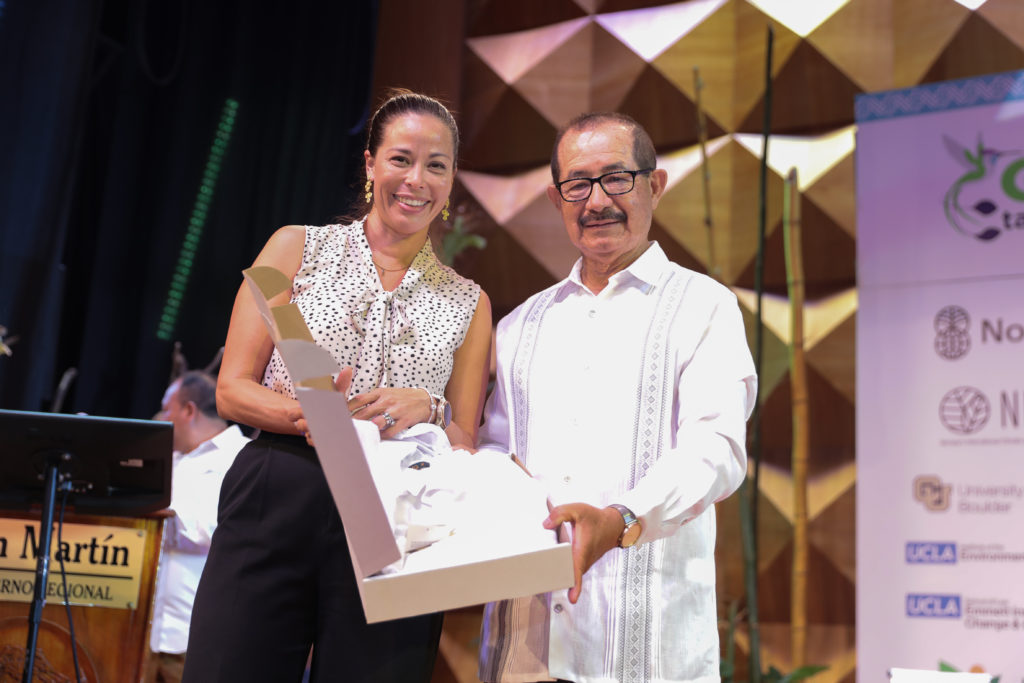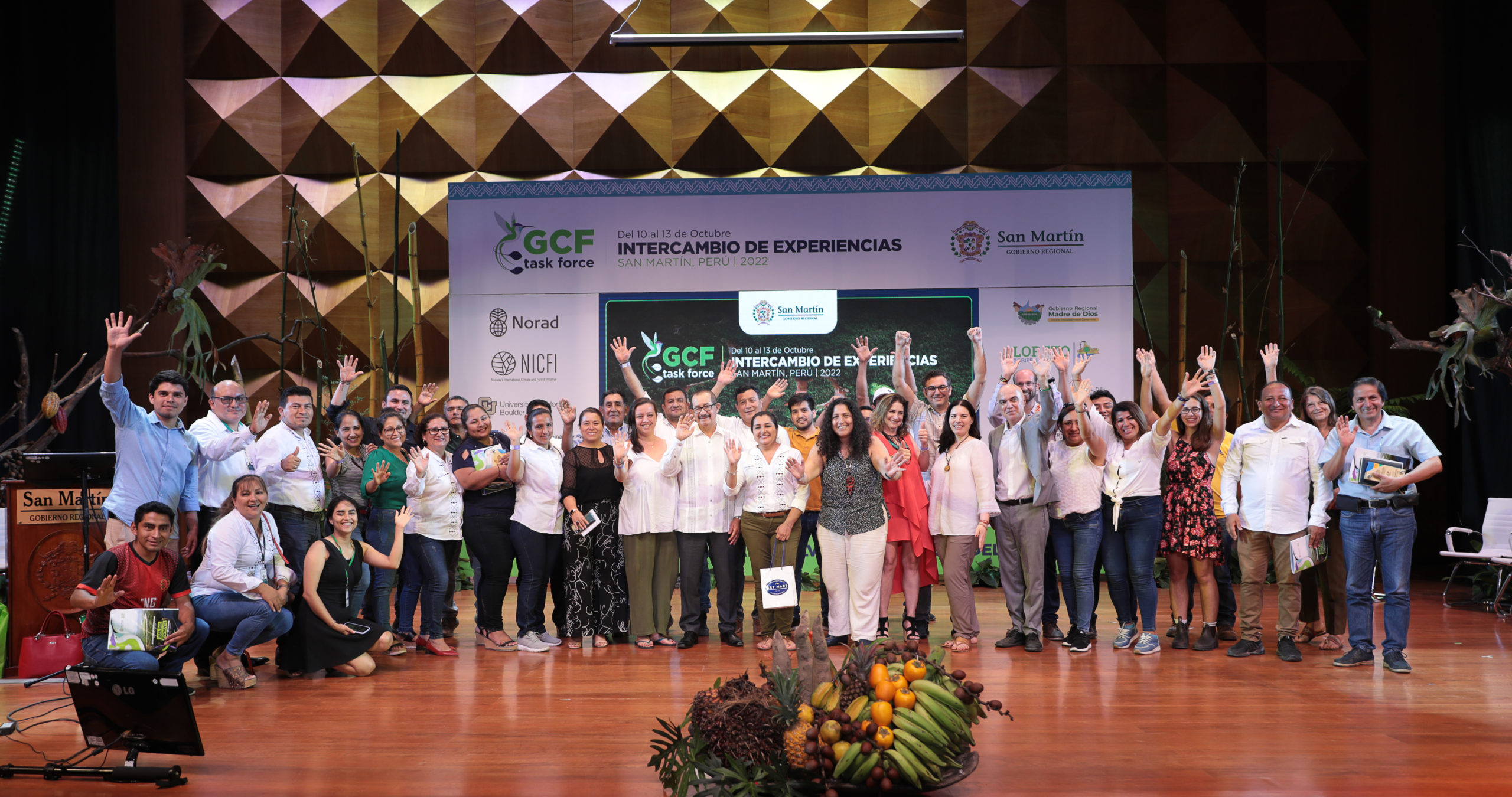October 13, 2022
After four intense days of field visits and technical engagement, the Intercambio de Experiencias wrapped up activities with a High-Level Segment featuring political, technical, philanthropic, business, and community leaders.
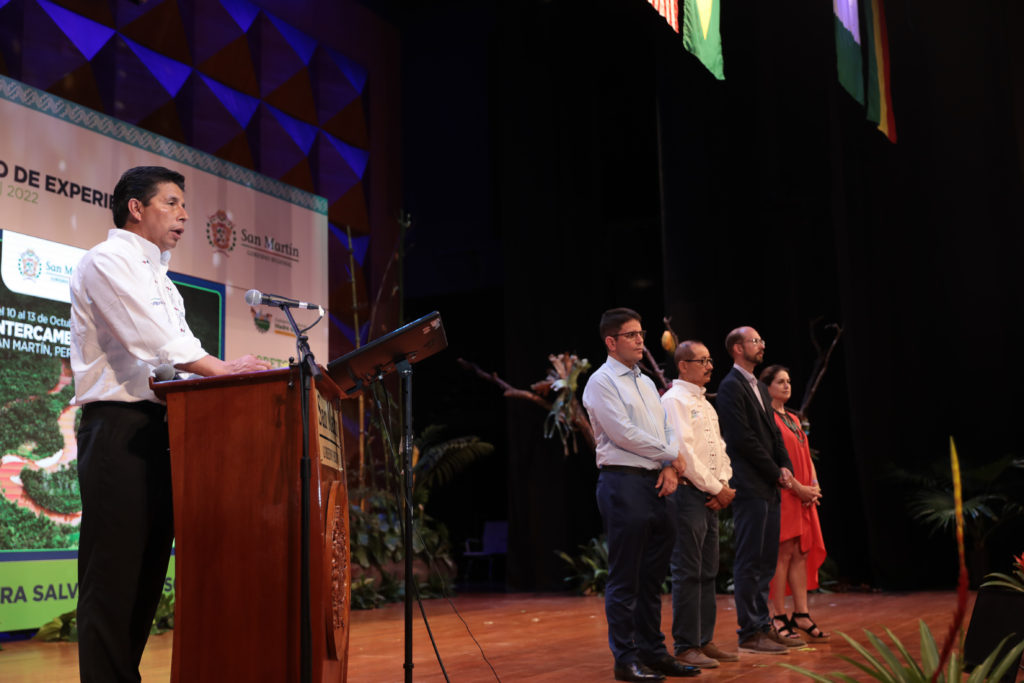
The President of Peru, Pedro Castillo, addressed participants gathered in the Cultural Center of Moyobamba and those tuning in to the live transmission around the world:
We are gathered here for a great cause, which commits us all to the protection of tropical forests and the Amazon, the fight against climate change, and the commitment to inclusive, equitable and sustainable development … We have to promote a new forest economy that prioritizes people and prioritizes communities; that mobilizes science and technology, gathering the contribution of universities and research institutes; that commits the financial support of the private sector and international cooperation; but above all, defending the natural protected areas, including the territories of native, Indigenous, and original communities.
He concluded by stating that “a climate-responsible country is a country that grows and develops.”
In an unscripted moment during the closing, Amazonian artist and youth representative from Ucayali, Peru, El Ninio, took to the stage and led participants in an “encouraging and hope-filled chorus” after performing an impromptu song about protecting the environment.
Fabiola Muñoz, Peru’s former Minister of Environment and Country Director of the GCF Task Force Peru, unveiled the Conectividad Amazonica Sostenible (CAS) initiative, presented by delegates and various institutions of Peru who joined to co-create a sustainable Amazon connectivity. “The bet is to achieve a vast community of actors, where we build a bottom-up proposal on the discussion of connectivity of Amazonía. The basis of this proposal is an aspiration: to give the people who are in the territory the opportunity to tell us what they think, what they feel, what they need, and how they would expect connectivity problems (such as telehealth, communications, transportation, among others) to be solved,” she said.
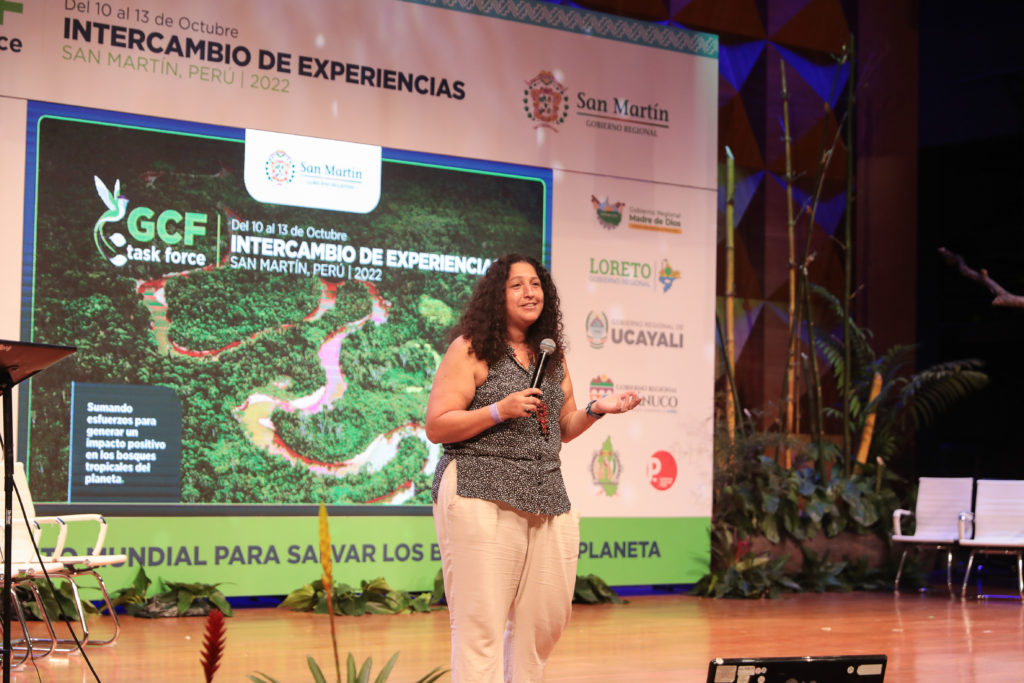
Closing the morning program, the Rainforest Alliance presented the Alianza para Los Paisajes (Collective Landscape Action), working alongside USAID, Clarmondial, the Carbon Disclosure Project, and Conservation International to address global environmental challenges associated with commodity-driven deforestation in some of the world’s most important tropical ecosystems and sourcing regions.
Participants of the Intercambio de Experiencias had been collaborating for the last two days of technical discussions in different workgroups, each addressing one of the four pillars of the Manaus Action Plan for a New Forest Economy – including the discussion of participants’ observations made during the first two days of field visits to the more than 60 initiatives to the surrounding areas of Tarapoto and Moyobamba. To open the day’s afternoon session, a group representative of each of the workgroups shared with the nearly 500 participants their workgroup’s conclusions, proposals, and recommendations.
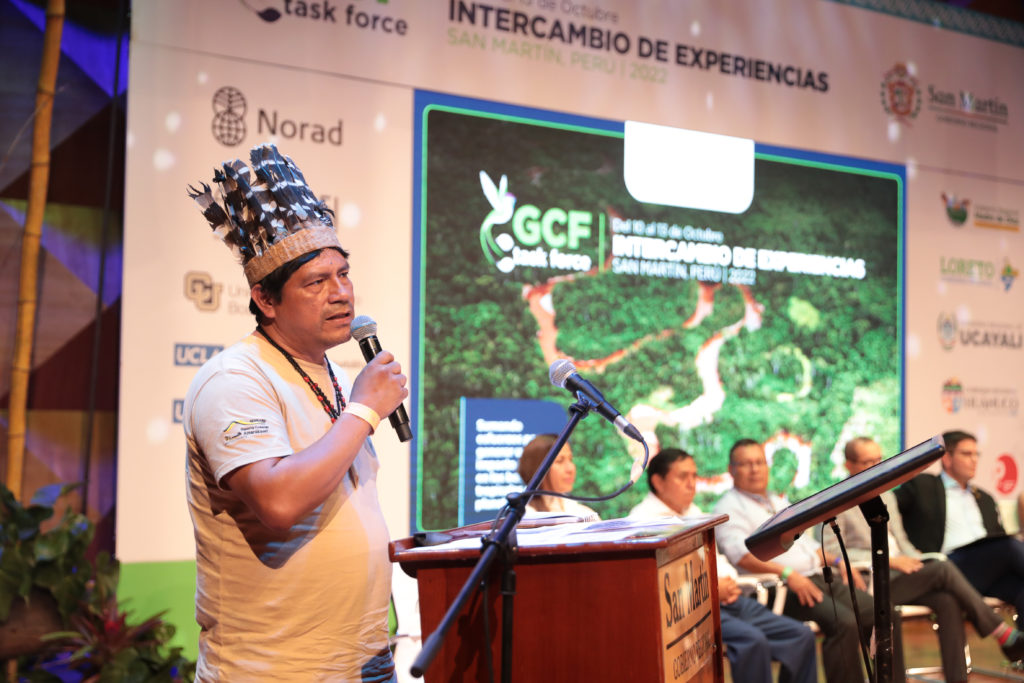
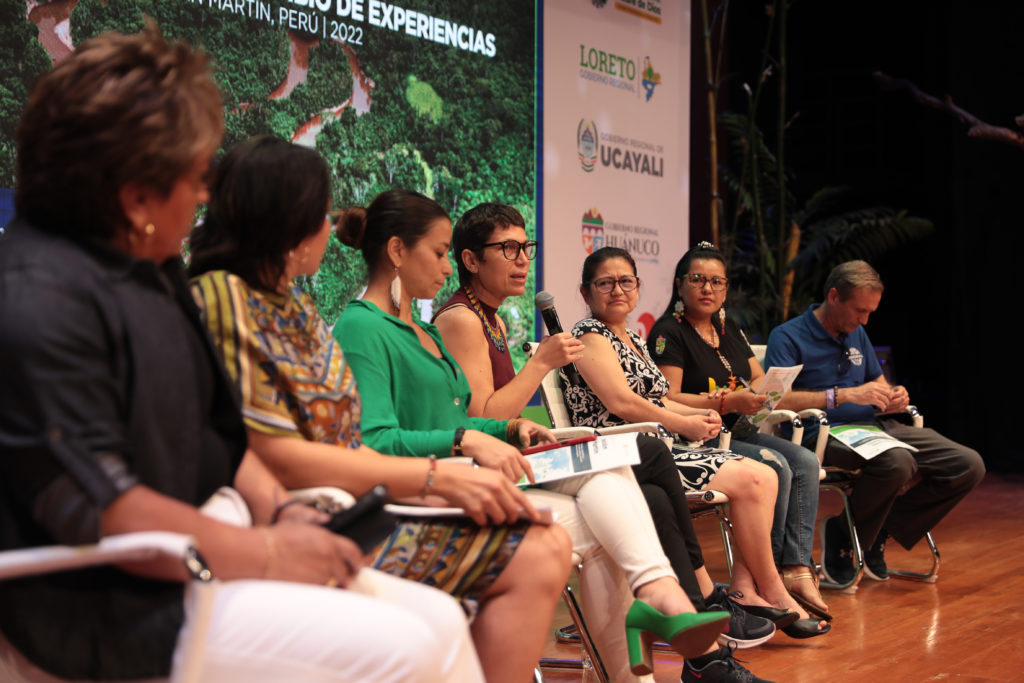
Highlighting the Intercambio de Experiencias’ four days of extensive work, representatives of subnational governments that make up the GCF Task Force network, as well as civil society, Indigenous peoples, religious institutions, and small and medium-sized business organizations endorsed the San Martin Declaration, signed in the city of Moyobamba on this October 13th, 2022. Find more information here. The signing of the San Martin Declaration incorporated dialogue from Governors, Vice-governors, Governors-elect, and one gubernatorial candidate from across the Amazon (Peru, Ecuador, Bolivia, and Brazil). Each of these political leaders spoke to the importance of tropical forests, forest economies, communities, and sustainable finance as key to moving their jurisdictions forward.
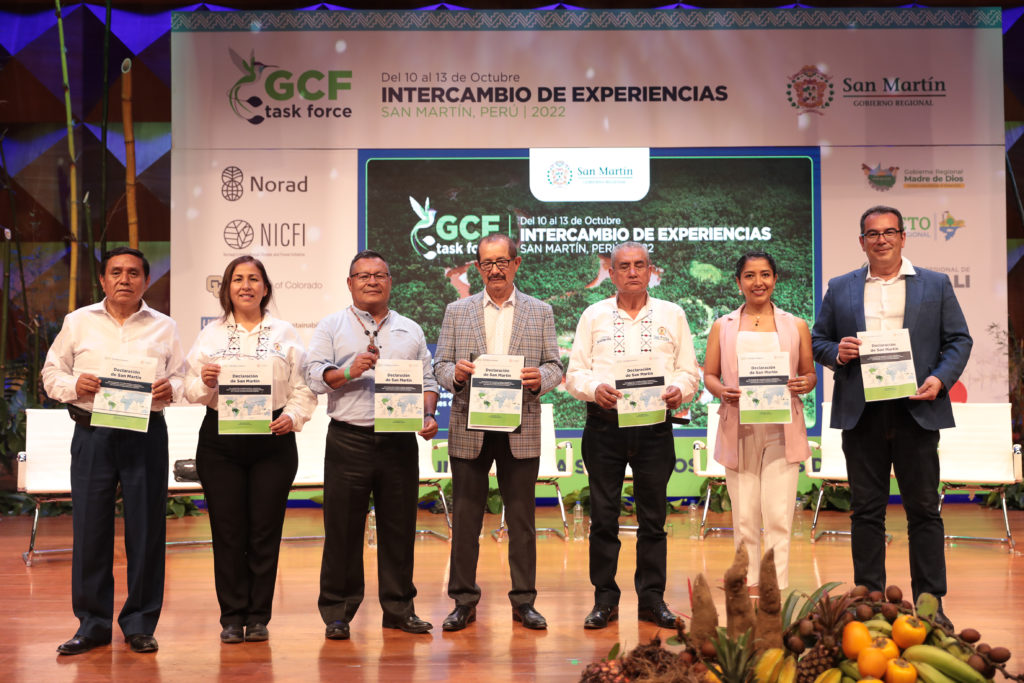
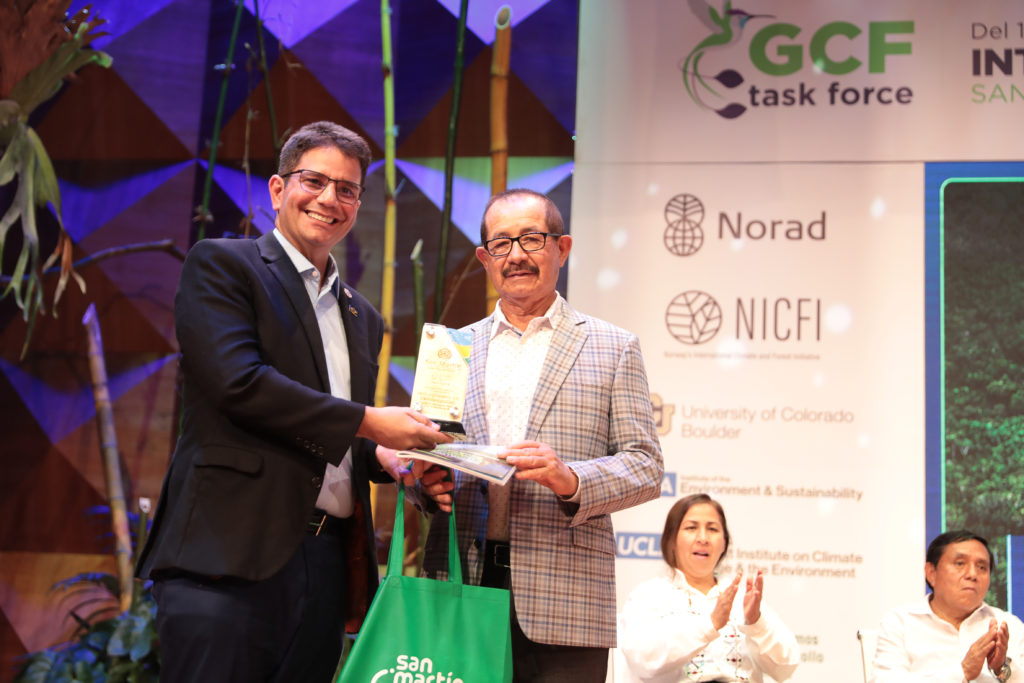
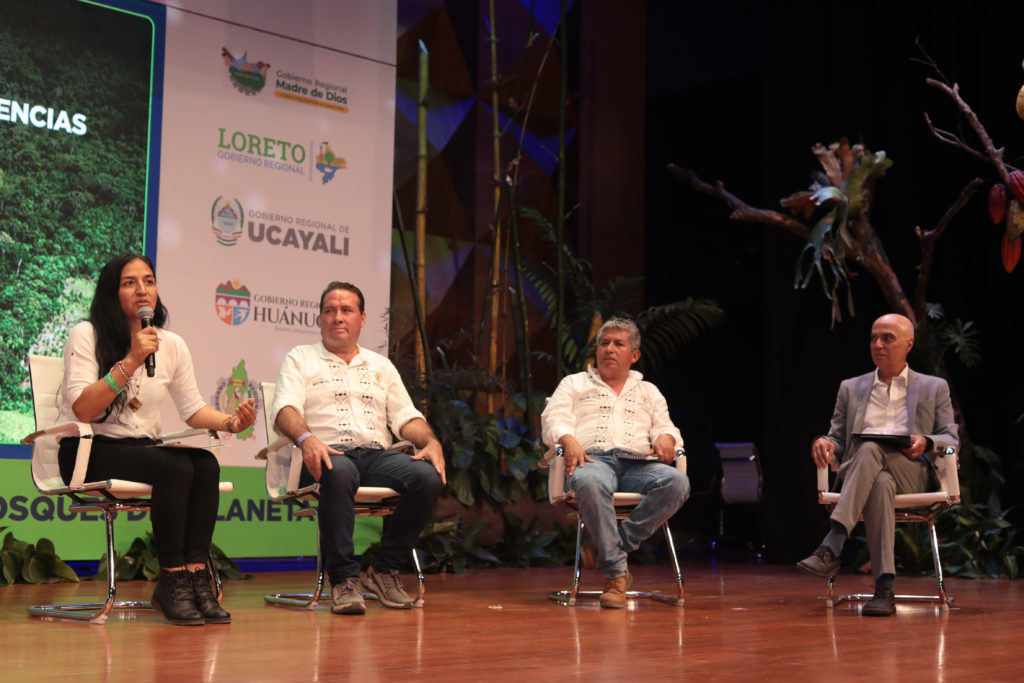
In addition, Dina Júc of the Mesoamerican Alliance of Peoples and Forests and Francisca de Lima, President of the IPLC Global Committee, representing the Global Committee of Indigenous Peoples and Local Communities (Global Committee), who are part of the GCF Task Force network, presented the Declaration from the Global Group of Indigenous Peoples and Local Communities, reaffirming their importance in overcoming social and environmental justice. Find more information and the full Declaration here.
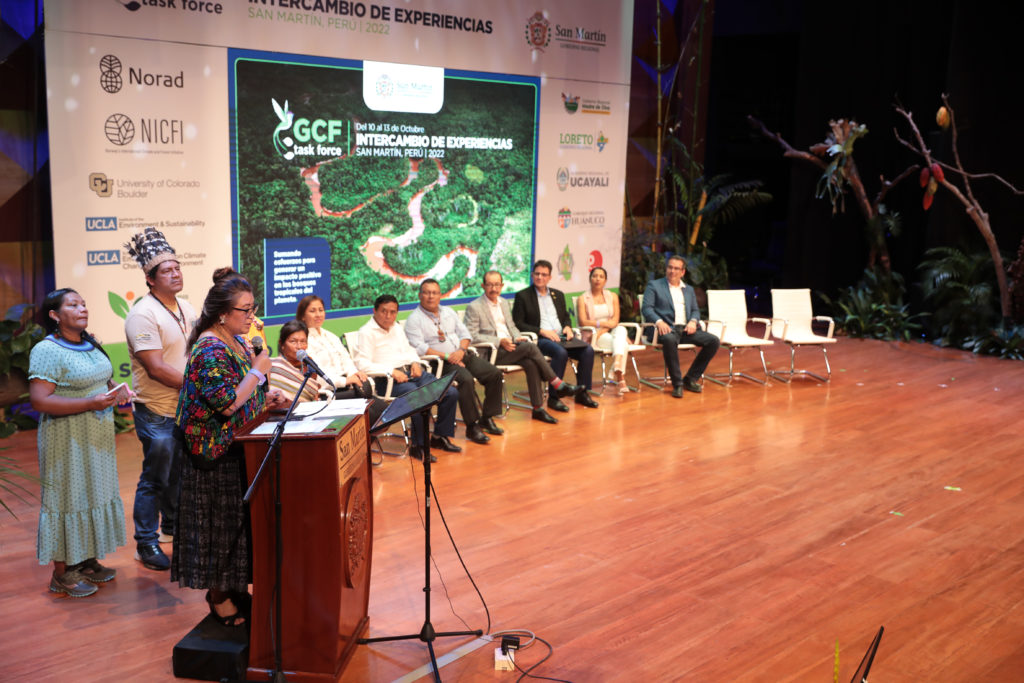
Finally, to close the four-day Intercambio de Experiencias, our host and Region Governor of San Martin, Pedro Bogarin thanked the participants for engaging in this intense, intercultural and international exchange in San Martin. He urged all of the participants to move forward in their efforts and to “put passion into what we do… if you assume a commitment, put all the passion you can into it.”
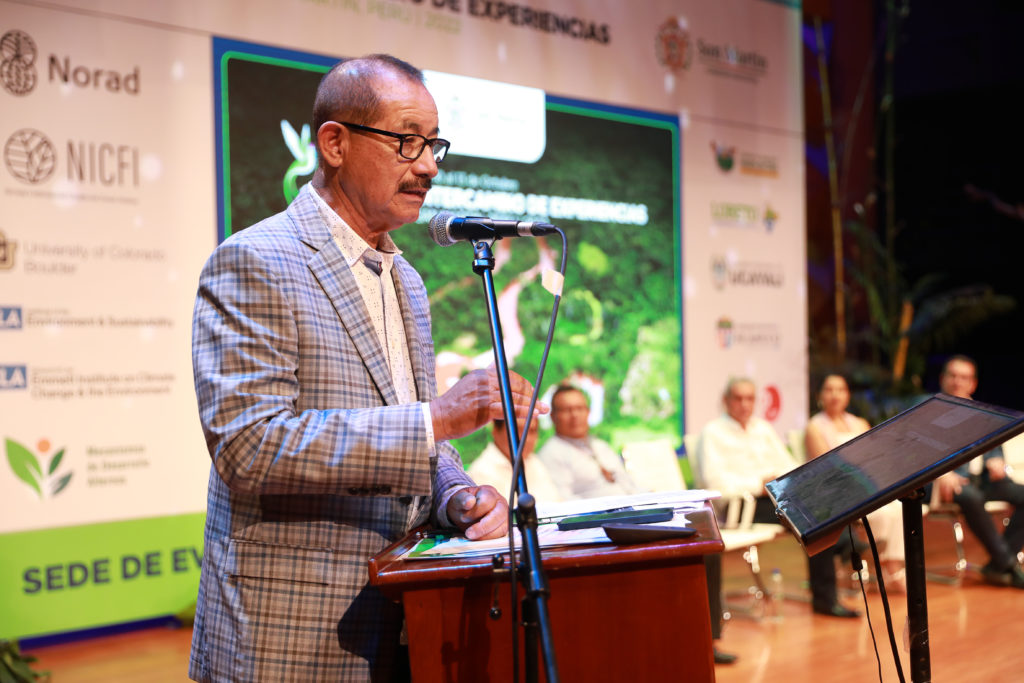
GFC Task Force Secretariat Co-Director Jason Gray expressed that “we have strengthened this incredible network of Governments, Indigenous Peoples, and other Partners,” and GCF Task Force Co-Director Colleen Scanlan Lyons concluded by stating that “Our gathering here can be summarized as planting seeds and creating a family.”
And, in true GCF Task Force tradition, Governor Bogarin handed off the mantel to his GCF Task Force Co-Chair, the government of Yucatan, Mexico, which will host the next Annual Meeting in February 2023.
